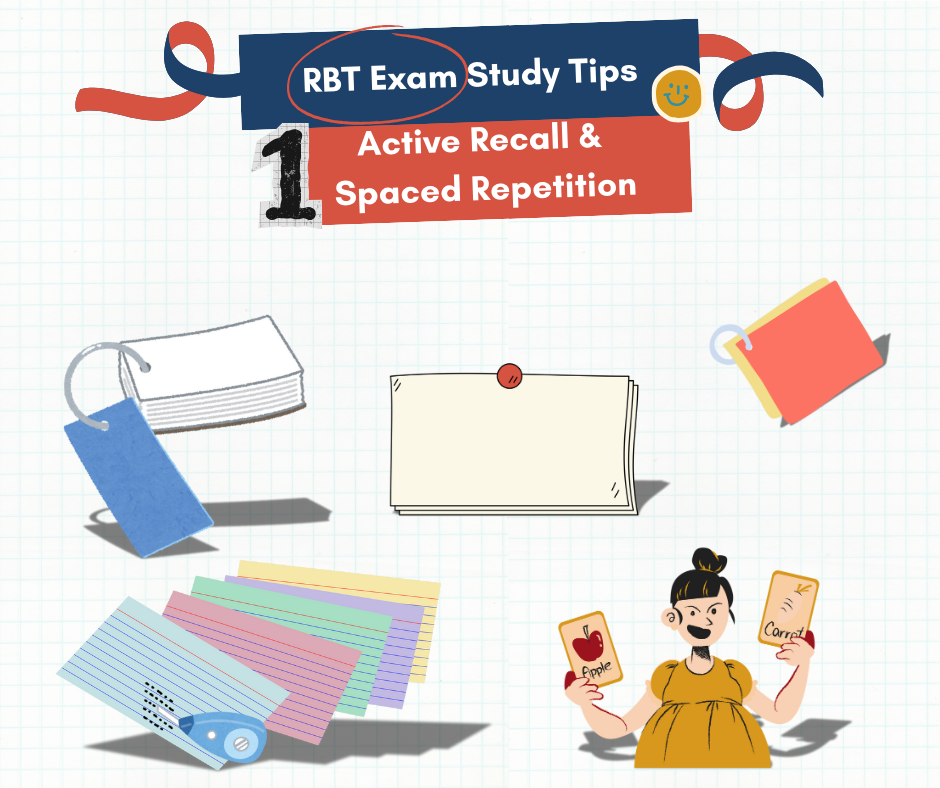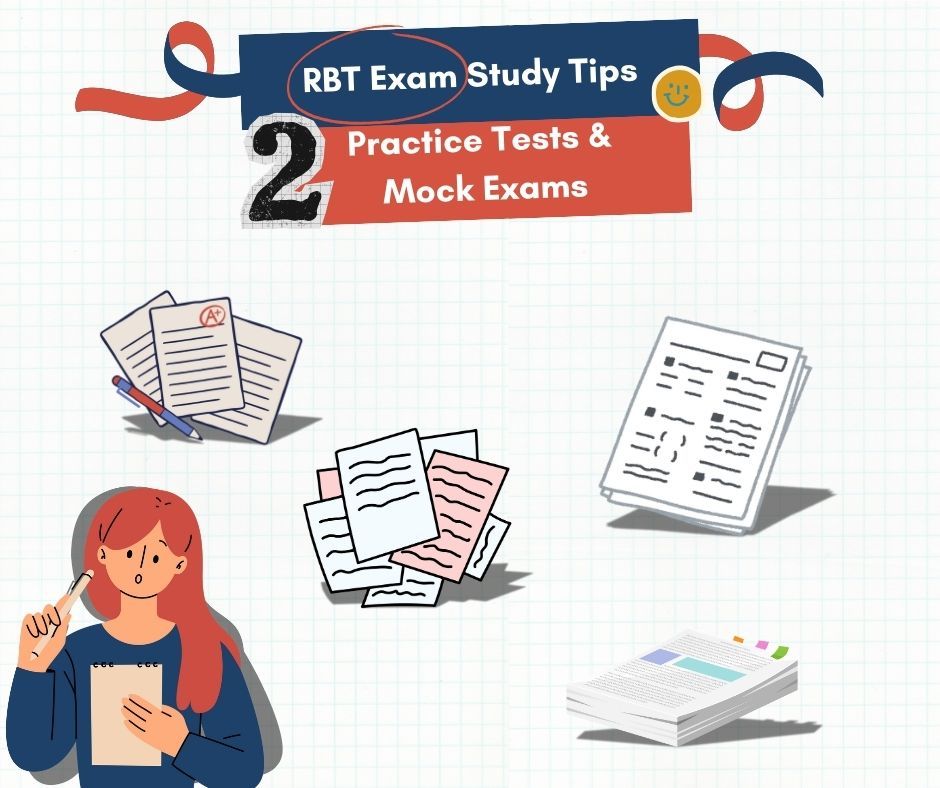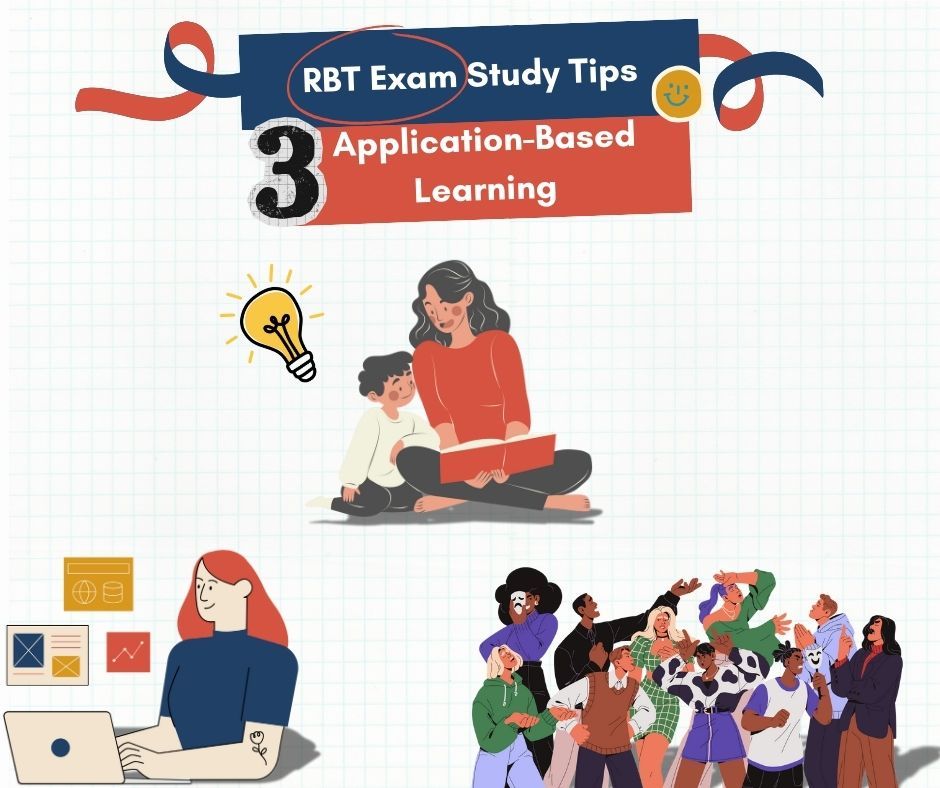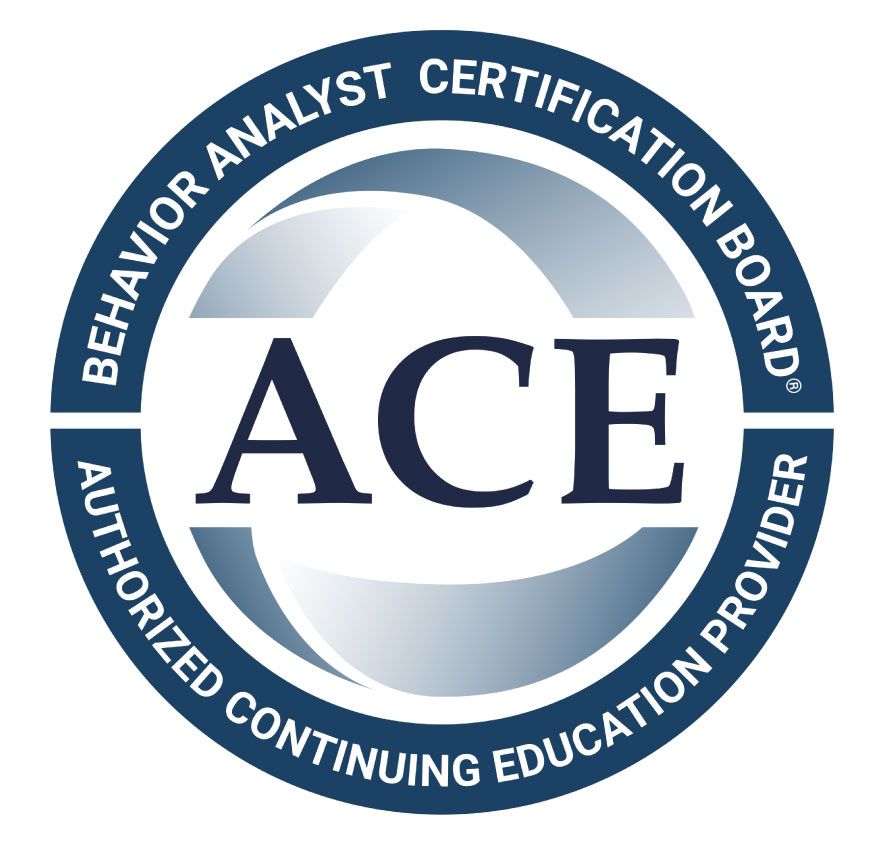The Ultimate Research-Based Study Guide for the RBT® Exam
Passing the Registered Behavior Technician® (RBT®) exam requires more than just memorizing terms—it requires deep understanding, critical thinking, and practical application. The top three study techniques outlined below are all based on scientific research in psychology, education, and cognitive neuroscience to optimize memory retention and test performance.

- Active recall is a proven learning technique that forces the brain to retrieve information rather than just recognize it. Research by Roediger and Karpicke (2006) found that testing oneself, even without feedback, leads to better long-term retention than passive reviewing.
- Spaced repetition is supported by Ebbinghaus' Forgetting Curve theory (1885), which shows that without review, most new information is forgotten within days. By reviewing material over increasing intervals, spaced repetition helps counteract this decline and reinforces long-term memory.
- The RBT® exam requires recall of key terms and definitions, such as reinforcement, prompting, and measurement types. Using active recall techniques strengthens memory retention, while spaced repetition ensures that information stays fresh over time.
- Create study note-cards by hand. Handwritten flashcards are far more effective than printed flashcards. Summarize concepts in your own words to deepen understanding and reinforce learning.
- Review the flashcards each day. Practice self-testing daily, gradually increasing the interval between reviews as concepts become more familiar.

Research-Based Explanation
- Practice testing is one of the most effective study methods, according to Dunlosky et al. (2013). Their research found that mock exams improve retrieval strength (how easily information is recalled) and transferability (applying knowledge to new contexts). Additionally, Kang et al. (2007) found that test-takers who practiced with mock exams performed significantly better than those who only reread material.
- The RBT® exam consists of multiple-choice questions that include applied scenarios. Practicing with real exam-style questions helps candidates recognize patterns in question wording and structure. Additionally, taking timed mock exams prepares test-takers for the actual exam environment, reducing stress and improving performance.
- Spend your time with practice questions found in quizzes that provide you with the correct answers (to study repeatedly). You can also take a full-length practice test before the exam.
- Focus on correct answers and write down why each answer was correct to identify patterns of understanding.
- Use trusted sources like ATCC for accurate and high-quality practice questions to support your learning and exam preparation. The quizzes offered within the ATCC curriculum provide the correct answers to all of the practice questions, so you can be sure you are practicing answering these questions correctly, the next time you take the practice quiz. This is called errorless learning.

Research-Based Explanation
- Experiential learning theory (Kolb, 1984) emphasizes that learning is most effective when applied to real-life situations. Additionally, Anderson and Krathwohl’s (2001) Taxonomy of Learning demonstrates that moving from memorization (lower-order thinking) to application and analysis (higher-order thinking) improves retention and real-world problem-solving skills.
- The RBT® exam includes realistic applied behavior analysis (ABA) scenarios where candidates must demonstrate understanding beyond memorization. Role-playing and scenario-based learning enhance critical thinking and help test-takers make connections between theoretical knowledge and real-world applications.
- Watch ABA therapy videos from sources.
- Engage in role-playing scenarios with a study partner to practice responding to various ABA situations.
- Mentally apply concepts to real-life cases, such as considering how reinforcement strategies would work in a given therapy session.
Why This Study Plan Works (Based on Learning Science)
This three-step study approach aligns with proven learning strategies:
- Retrieval Practice (Active Recall & Testing): Strengthens memory by requiring active engagement.
- Distributed Practice (Spaced Repetition): Prevents forgetting by reinforcing learning over time.
- Contextual Learning (Application-Based Learning): Enhances comprehension and critical thinking by applying concepts to real-world scenarios.
Guaranteed Security using one of the most advanced encrypted systems on the market.
The information in this page is being processed and encrypted securely using industry-leading encryption and fraud prevention tools.
